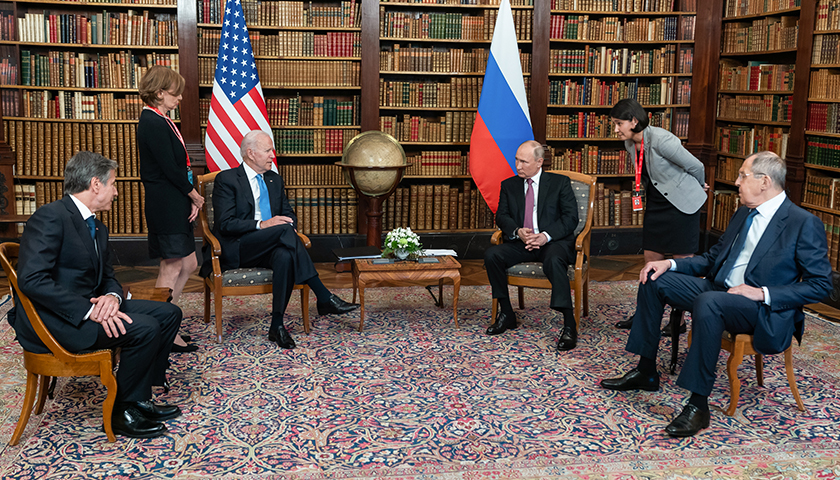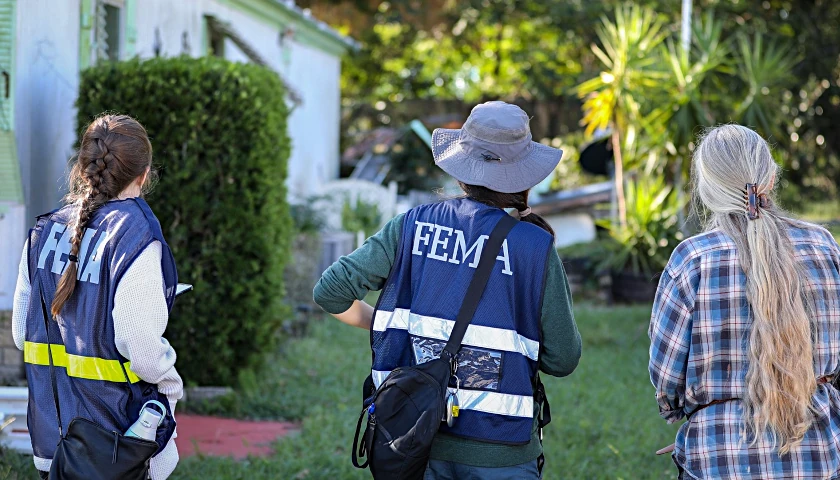by Brandon J. Weichert
Since Russia initiated its brutal and illegal invasion of Ukraine, the West has responded with a hearty bellow of “Cry Havoc! And let slip the dogs of war!” Since February 24, NATO has poured nearly all its otherwise limited surplus of weapons and diplomatic capital—as well as economic capital, especially from the United States—into propping up the Ukrainian resistance front. Due to this unprecedented level of support for Ukraine, Kiev’s forces have successfully rebuffed a Russian invasion of their historic capital and shifted the fighting over to the Russian-controlled eastern portion and the contested southern area of Ukraine.
The Ukraine War has exacerbated the ongoing food and gas crises. The Biden Administration ignored the concerns of those who said that a war in Ukraine, and the subsequent onerous sanctions imposed upon Russia, the world’s largest exporter of fossil fuels, would increase costs for ordinary Americans and make life harder for people everywhere. These same “experts” who derided those with concerns about the ramifications of unfettered support for the Ukrainians in the ongoing war are the same people who’ve dangerously downplayed the threat we are all facing of nuclear war with Russia over Ukraine.
When the war shifted from a justified defense of Ukraine’s territory in the central and western portions of the country to the predominantly Russian-speaking eastern section, things became complicated for Ukraine’s forces. Russia has long held a dominant position in Eastern Ukraine, supporting the breakaway provinces in Luhansk and Donetsk.
Putin Not Giving Up in Ukraine
After the embarrassing defeat Vladimir Putin suffered in his quixotic attempt to conquer Kiev, he is not about to let the section of Ukraine his forces have controlled for the last eight years go back to Ukrainian control so easily. Since the war escalated, and the focus of fighting went over to the east and south of Ukraine, a coterie of Russian officials have indicated their increasing willingness to risk nuclear war with the Americans and their NATO partners if the West does not stop its full-throated support for Ukraine in their endeavors to completely evict the Russian invaders from the embattled country.
Just as with the concerns over food and energy prices, the threat of nuclear war has been written off publicly by American and European leaders alike. We are told that Putin is simultaneously the most insane man alive and that he wouldn’t dare risk nuclear warfare with the West because . . . Well, that’d just be insane.
Of course, the same people ignoring the prospect of a Russian nuclear strike against NATO also insisted that Putin wouldn’t dare to invade Ukraine. Then when he did, they insisted that Putin wouldn’t dream of trying to conquer the capital of Kiev. How did those predictions work out?
No doubt, they are wrong again.
War Without End Goes Nuclear
Putin has staked his legitimacy upon his Ukrainian escapade. Thus far, it has not been the resounding victory he envisaged. Russia has not prevailed largely because the West has been such a good friend to Ukraine’s gallant defenders. But the longer the conflict drags on, the more illogical the notion that the war in Ukraine can be kept local appears—even in spite of the copious assistance Ukrainian forces are receiving from the West.
If Ukraine’s forces insist on bringing the war to Russia’s zone of control in Eastern Ukraine, and if the West continues not only supplying arms but using its intelligence to actively target and, in some cases, to kill scores of Russian troops—then it is only a matter of time before Putin decides to let the nuclear genie out of its bottle.
How can Biden and the rest of Washington’s foreign policy intelligentsia not recognize this? Especially as the West offloads missile systems that are capable of hitting targets deep within Russia. How would Washington respond if Russia were providing Mexican drug cartels with capabilities to strike targets deep within the United States?
Historical Analogue
World War I began over a local conflict. Serbian nationalists, angered their lands were being incorporated into the foreign Austro-Hungarian Empire, hatched an assassination plot that culminated with the murder of Austria’s heir apparent, the Archduke Franz Ferdinand and his wife. Because of this murder, the Austro-Hungarian military eventually launched a massive strike directed against suspected Serbian nationalists.
At the time, this was known as the “Third Balkan War”—indicating just how localized most governments in Europe and around the world viewed the conflict. Shortly thereafter, however, the conflict grew exponentially and became the catastrophe we remember today as World War I. No one involved in the “Third Balkan War” ever intended the crisis to become a society-shattering global conflagration.
Like the Third Balkan War, the Russo-Ukraine War not only risks blowing up into a full-blown world war involving nearly every major nuclear weapon-possessing state on Earth, but it could see nuclear weapons being used in war for the first time since 1945. And these weapons would be far more destructive than the bombs the Americans dropped on Hiroshima and Nagasaki. Moreover, there have been a series of dangerous escalations in Ukraine, not just with Moscow’s blustery language about nuclear war with the West. Russia has used hypersonic missiles in combat for the first time in history and Moscow has engaged in a series of cyberattacks against Western targets.
Potential Russian nuclear strikes against NATO targets would likely be met with nuclear reprisals from the West, and the nightmare scenarios that once terrorized those who lived through the Cold War could become a tragic reality. All because Joe Biden has refused to face the present crisis with a realistic objective in mind. Instead, he has deferred to the Ukrainians who, understandably, want to reclaim their entire country from the Russians—regardless of the consequences to the rest of the world.
Sleepwalking Toward Armageddon
The ongoing food, energy, and supply chain crises, as well as the potential for a nuclear world war, are all connected via Ukraine. The West was justified in assisting the Ukrainians to prevent a total Russian takeover of their besieged nation. The time has now arrived, however, for the world’s great powers (namely, the United States) to use its immense power and leverage over the warring parties to end the conflict, restore some semblance of order into the region, and to avert a wider, unnecessary nuclear war with Russia.
Given that we’ve got a man Joe Biden, who is frail and forgetful on a good day, the chances of a peaceful resolution are not great. The supply chain and gas crises are not the end of our woes in America. They are but the start—so long as the Ukraine War drags on and the Biden Administration remains in power.
Just as the leaders of Europe in the run up to World War I failed to recognize how their actions (or inaction exacerbated the likelihood of total world war, we now need to seriously contemplate the possibility of a nuclear war with Russia over tiny Ukraine simply because we’ve got leaders in Washington who are too ignorant and corrupt to avoid one.
America and its NATO partners have done the right thing in Ukraine: They have stood by a partner (however imperfect) and ensured that the embattled nation-state has a chance at remaining an independent proto-democracy. But, reconstituting Ukraine’s sovereignty as a whole is simply outside the realm of the possible—particularly given how committed to hanging onto Eastern Ukraine the criminal regime in Moscow is.
– – –
Brandon J. Weichert is a geopolitical analyst who manages The Weichert Report. He is a contributing editor at American Greatness and a contributor at Asia Times . He is the author of Winning Space: How America Remains a Superpower (Republic Book Publishers). His second book, The Shadow War: Iran’s Quest for Supremacy (Republic Book Publishers) is due in Fall of 2022. Weichert is an educator who travels the country speaking to military and business audiences about space, geopolitics, technology, and the future of war. He can be followed via Twitter: @WeTheBrandon.




